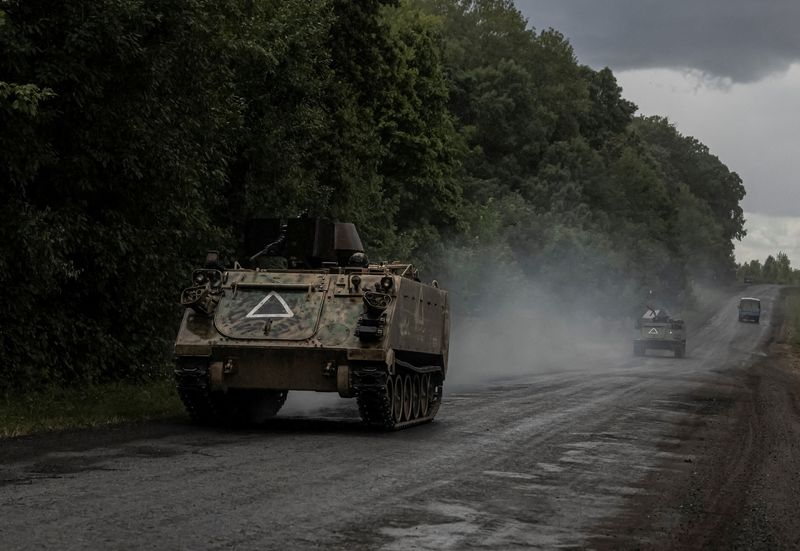By Michael Holden
LONDON (Reuters) -The head of the CIA, who is also the chief U.S. negotiator for an end to the Gaza war and release of hostages held by Hamas, said a more detailed ceasefire proposal would be made in the next several days.
After 11 months of conflict in Gaza, CIA Director William Burns said he was working very hard on "texts and creative formulas" with mediators Qatar and Egypt to secure a ceasefire, by finding a proposal which satisfies both parties.
"We will make this more detailed proposal, I hope in the next several days, and then we'll see," said Burns, speaking at a Financial Times event in London alongside Richard Moore, head of Britain's MI6 foreign spy agency, in an unprecedented joint public appearance.
Burns added that it was a question of political will and he hoped leaders on both sides recognised "the time has come finally to make some hard choices and some difficult compromises".
He said 90% of the paragraphs had been agreed but the last 10% were always the hardest.
"My hope is that you know, they'll recognise what's at stake here and be willing to move ahead on that basis," he said.
Hamas attacked Israel on Oct. 7 killing 1,200 people and taking about 250 hostages, according to Israeli tallies, while Israel's retaliatory offensive in Gaza has killed nearly 41,000 Palestinians, Gaza's health authorities have said, largely levelling the coastal enclave.
BACKING UKRAINE
In an joint op-ed for Saturday's FT newspaper, Burns and Moore highlighted joint efforts to help Ukraine in its war against Russia, and the British spy chief said it was critical the West maintained its support.
Discussing Ukraine's offensive into the Kursk region of Russia where Kyiv has seized land, Moore called it an "audacious and bold" move to try and change the game.
"It's too early to say how long the Ukrainians will be able to hang on in there (in Kursk)," he added, saying the incursion had brought the war home to ordinary Russians.
While Burns called the offensive a "significant tactical achievement" for the Ukrainians. But while he said it had exposed the Russian military's vulnerabilities, he did not see any evidence that Russian President Vladimir Putin's grip on power was weakening.
"It did raise questions on the part of people we could see across the Russian elite about where is this all headed," he said.
Burns also disclosed that earlier in the conflict he had been sent by U.S. President Joe Biden to meet one of his Russian counterparts to warn him of the consequences of the use of nuclear weapons.
"There was a moment in the fall of 2022 when I think there was a genuine risk of the potential use of tactical nuclear weapons," the CIA director said. "We've continued to be very direct about that. So I don't think we can afford to be intimidated by that sabre rattling or bullying."
In their op-ed, the spy chiefs also warned about a reckless campaign of sabotage being waged across Europe by Russian intelligence operatives.

"I think Russian intelligence services has gone a bit feral, frankly, in some of their behaviour," Moore said. The fact that they are using criminal elements shows you that they're becoming a bit desperate ... It's become a bit more amateurish."
He added: "Amateurish can actually be more reckless and more dangerous as well."